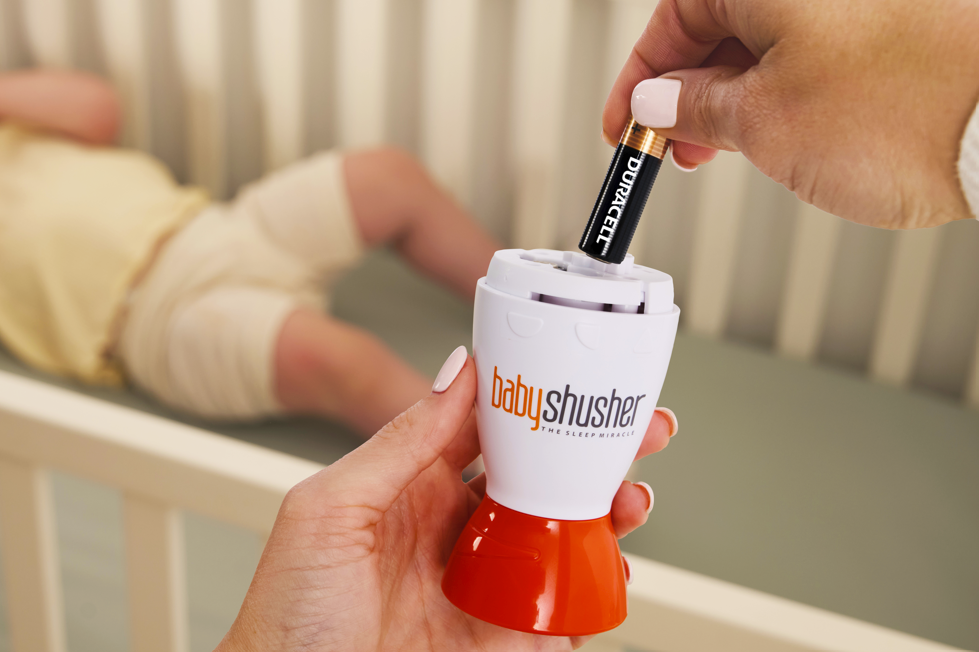Helping your baby sleep soundly in a crib or bassinet takes time and effort. Whether you’re a first-time parent or a seasoned pro, it can be an ongoing struggle to get your little one to settle down and drift off to dreamland in their crib.
If this is your struggle, you’re not alone.
In this blog post, we’re going to discuss why your baby won’t sleep in their crib, common mistakes parents make, how to create a sleep-friendly environment, and when to seek help if your baby’s sleep struggles persist.
A Parenting Struggle More Common Than You Think
For parents, getting their baby to sleep is a top priority. It’s no wonder that so many parents become discouraged when their baby won’t sleep in their crib or bassinet.
But the truth is, you’re not alone. A baby's sleep struggles are a common issue among parents, and with the right strategies, you can help your baby learn to sleep better in their crib or bassinet.
A Sleep Junkie survey discovered that 68% of the people surveyed were achieving at least 7 hours of sleep before having kids. This is a crucial amount for body and mind restoration, yet that study showed that only 10% receive the recommended amount of sleep after babies arrive in a household.
Why Won’t Your Baby Sleep In A Crib?
There are a few underlying factors that can contribute to your baby’s sleep struggles in the crib:
1. Underlying Medical Issues
Some medical issues can make it harder for your baby to sleep soundly in their crib, such as acid reflux or colic. Also, your baby's sleep struggles could be a sign of something more serious, like sleep apnea or insomnia. If you have concerns, consult with your baby’s pediatrician.
Picking up on these issues will exclude medical issues as a cause of your baby’s sleep struggles, so you can focus on addressing other potential causes. Plus ruling out more serious medical issues will put your mind at ease.
2. Developmental And Environmental Factors
As your baby grows and develops, they learn to respond to their environment in different ways. For one, their internal circadian rhythm develops, which determines your baby’s sleep-wake cycles.
Also, they become more aware of the environment. Therefore, changes in the environment such as loud noises, changes in temperature, or bright lights can make your baby’s sleep environment uncomfortable and can cause your baby to wake prematurely. This is why many studies recommend using a red night light that has a longer wavelength and will not interfere with your baby’s newly developing circadian rhythm.
Developmental changes such as teething babies can cause irritability and discomfort that can prevent your baby from falling asleep soundly in a crib.
3. Common Mistakes Parents Make
Sometimes parents make common mistakes when trying to get their baby to sleep in a crib or bassinet, such as not establishing a bedtime routine or responding too quickly to their baby’s cries. This doesn’t give your baby enough time to self-soothe and can make it harder for your baby to adjust to their sleep environment.
4. Unfamiliar Surroundings
When a baby is unfamiliar with their sleep environment, they may struggle to feel comfortable in their crib or bassinet. This is especially true if your baby has recently transitioned from co-sleeping to sleeping in a crib or bassinet. Night light and a sound machine can help your baby feel more comfortable in their sleep environment.
How To Get Your Baby To Sleep In A Crib
Knowing the best way to navigate your baby’s sleep struggles can be tricky, but here are some tips to help your baby get comfortable sleeping in their crib or bassinet:
1. Establishing a Bedtime Routine
Creating a bedtime routine helps your baby know what to expect and allows them to self-soothe. This could include reading your baby a book, singing a song, or giving your baby a massage.
2. Creating a Sleep-Friendly Environment
Making sure your baby’s sleep environment is comfortable and familiar can help your baby sleep soundly in their crib. This includes making sure the temperature is optimal for your baby’s sleep (68-72 degrees Fahrenheit) and your baby’s sleep space is free of distractions, like noise or lights.
3. Responding to Night Wakings
It’s important to respond to your baby’s cries while also teaching your baby how to self-soothe and get back to sleep on their own. Try not to rush in immediately when your baby cries, and instead wait a few minutes to see if your baby can settle back down before intervening.
When To Seek Help
If your baby’s sleep struggles continue, it may be time to seek help from a pediatric sleep specialist. A sleep specialist can provide your baby with the guidance they need to establish healthy sleep habits, and help your baby — and you! — finally, get some much-needed rest.
Baby Shusher: The Sleep Miracle Sound Machine
Parenting isn't easy, and your baby's sleep struggles don't make it any easier. Having patience and understanding your baby's needs is key to helping your baby sleep soundly in their crib. Not to mention, utilizing the right tools, such as the baby shusher, can be a total game changer.
The Baby Shusher is a sound machine designed to help your baby fall asleep faster and sleep for longer with its natural human sounds that mimics the sounds babies heard in the womb. This can be used as part of your baby’s bedtime routine, and it also helps drown out any distractions your baby may experience during the night. With Baby Shusher, your baby can finally get a good night’s sleep!

